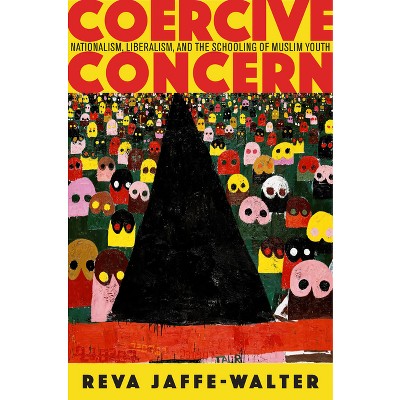Village Gone Viral - (Anthropology of Policy) by Marit Tolo Østebø (Paperback)

About this item
Highlights
- In 2001, Ethiopian Television aired a documentary about a small, rural village called Awra Amba, where women ploughed, men worked in the kitchen, and so-called harmful traditional practices did not exist.
- About the Author: Marit Tolo Østebø is Assistant Professor of Anthropology at the University of Florida.
- 248 Pages
- Social Science, Anthropology
- Series Name: Anthropology of Policy
Description
About the Book
"In 2001, Ethiopian Television aired a documentary about a small, rural village called Awra Amba. It told the story of a self-sustaining and gender-equal community, where women ploughed, men worked in the kitchen, and so-called 'Harmful Traditional Practices' did not exist. The narrative radically challenged prevailing images of Ethiopia as a gender-conservative and aid-dependent place. Soon, Awra Amba became a model for gender equality and sustainable development in Ethiopia and well beyond. Based on ethnographic research in Ethiopia, Europe, the United States, and via the Internet, Marit [steb² uses the Awra Amba case as a point of departure to examine the widespread circulation and use of models and modeling practices in an increasingly transnational policy world. With a particular focus on traveling models--policy models that become 'viral', that spread widely across different localities through various vectors, ranging from NGOs and multilateral organization to the Internet--this manuscript critically examines how the model paradigm plays out in contexts governed and informed by the politics of metrics and result-driven sustainable development goals. [steb² shows that while a model as a policy or policy tool may appear emancipatory from a global or national perspective, the consequences of being a model may be more ambivalent locally, increasing social inequalities, reinforcing social stratification, and concealing injustice. Village Gone Viral ultimately calls for a reflexive critical anthropology of the production, circulation and use of models as instruments for social change, that explores the power-knowledge effects of models, particularly those that offer themselves as liberatory, at multiple scales and in relation to various actors and media"--Book Synopsis
In 2001, Ethiopian Television aired a documentary about a small, rural village called Awra Amba, where women ploughed, men worked in the kitchen, and so-called harmful traditional practices did not exist. The documentary radically challenged prevailing images of Ethiopia as a gender-conservative and aid-dependent place, and Awra Amba became a symbol of gender equality and sustainable development in Ethiopia and beyond.
Village Gone Viral uses the example of Awra Amba to consider the widespread circulation and use of modeling practices in an increasingly transnational and digital policy world. With a particular focus on traveling models-policy models that become "viral" through various vectors, ranging from NGOs and multilateral organizations to the Internet-Marit Tolo Østebø critically examines the hidden dimensions of models and model making. While a policy model may be presented as a "best practice," one that can be scaled up and successfully applied to other places, the local impacts of the model paradigm are far more ambivalent-potentially increasing social inequalities, reinforcing social stratification, and concealing injustice. With this book, Østebø ultimately calls for a reflexive critical anthropology of the production, circulation, and use of models as instruments for social change.
Review Quotes
"Marit Tolo Østebø's engaged, excellently researched, and accessible Village Gone Viral stands out for its detailed examination of how circulating policy models are translated into everyday village life. Wherever in the world readers are, they will quickly feel familiar with what goes on in the seemingly remote village of Awra Amba."--Richard Rottenburg "Wits University"
"This thoughtful study is a distinctive addition to the theoretically complex literature on the anthropology of policy...Village Gone Viralgains depth and relevancy by acknowledging the importance of recognizing actions of inequality, exclusion, and injustice as evidence of flaws in an ideal social model, which can detrimentally impact any international application. Recommended."--R. B. Ridinger "CHOICE"
"Through innovative research in Ethiopia and beyond, Marit Tolo Østebø exposes the hidden dimensions of how policy models gain traction and with what consequences. Village Gone Viral follows the global circuits of a 'model' African village and the impact on its place of origin to offer original insights, well-written and relevant to wide audiences."--Victoria Bernal "University of California, Irvine"
"With this lively and engaging book, Marit Tolo Østebø not only provides a convincing and compelling account from a 'model village' in contemporary Ethiopia. She also enriches the anthropology of development with new theoretical tools and updates it with concepts appropriate for the Internet age. Highly recommended."--Thomas Hylland Eriksen "University of Oslo"
About the Author
Marit Tolo Østebø is Assistant Professor of Anthropology at the University of Florida.










